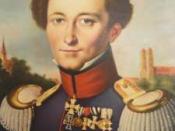Conflict Management and Resolution for Teams
"Conflict is the gadfly of thought. It stirs us to observation and memory. It instigates to invention. It shocks us out of sheep like passivity, and sets us at noting and contriving." -- John Dewey.
When a group of individuals with varying experiences, thought processes and expectations work together as a team, conflict is inevitable. While many people see conflict as a sign of failure, teams can potentially use conflict as an asset. Understanding conflict dynamics and cultural approaches to conflict management help teams to distill key points vital to a successful and productive resolution of team conflict.
There are four basic types of conflict: emotional, cognitive, constructive and destructive. Emotional and destructive conflicts lead to an inability to resolve issues. Cognitive and constructive conflicts are a necessary part of finding successful solutions as a team.
Emotional conflict is "personal, defensive, and resentful" (Thompson, Aranda, and Robbins, 2000) and of is based on anger, personality clashes, ego and tension.
Emotional conflict occurs when individual interests trump the interests of the team as a whole. This type of conflict interferes with the effort of a team to resolve a problem.
Cognitive conflict occurs when team members voice different ideas and is "largely depersonalized" (Thompson, Aranda, and Robbins, 2000). As opposed to emotional conflict, his type of conflict is based on arguments about the merits of ideas, plans and projects. Because cognitive conflict is not based on personal feelings, it forces team members to rethink problems and arrive at a collective decision.
Constructive conflict, as the name suggests, helps teams resolve problems and uncover new solutions to old issues in a productive manner (Thompson, Aranda, and Robbins, 2000). It allows change and growth to occur within a team environment.
Destructive conflict, like emotional conflict, causes dysfunction...



Excellent and complete
Well researched and written.
0 out of 0 people found this comment useful.